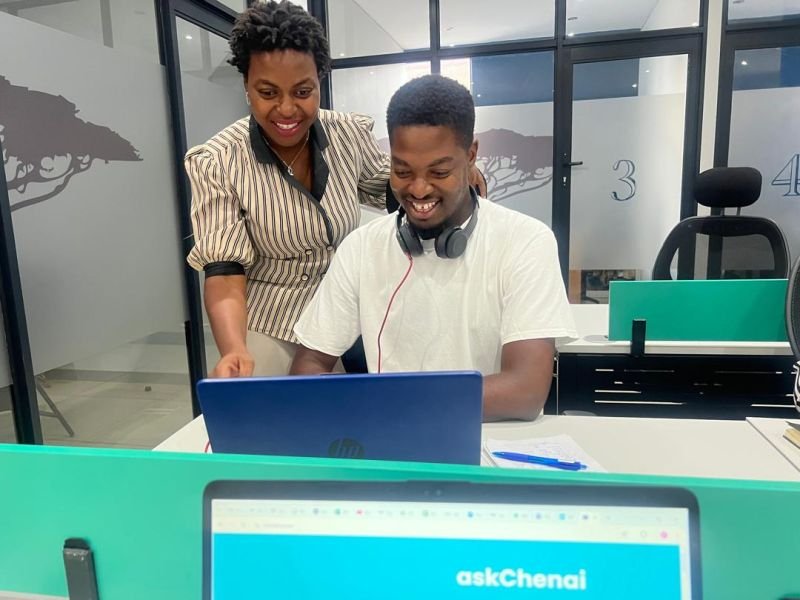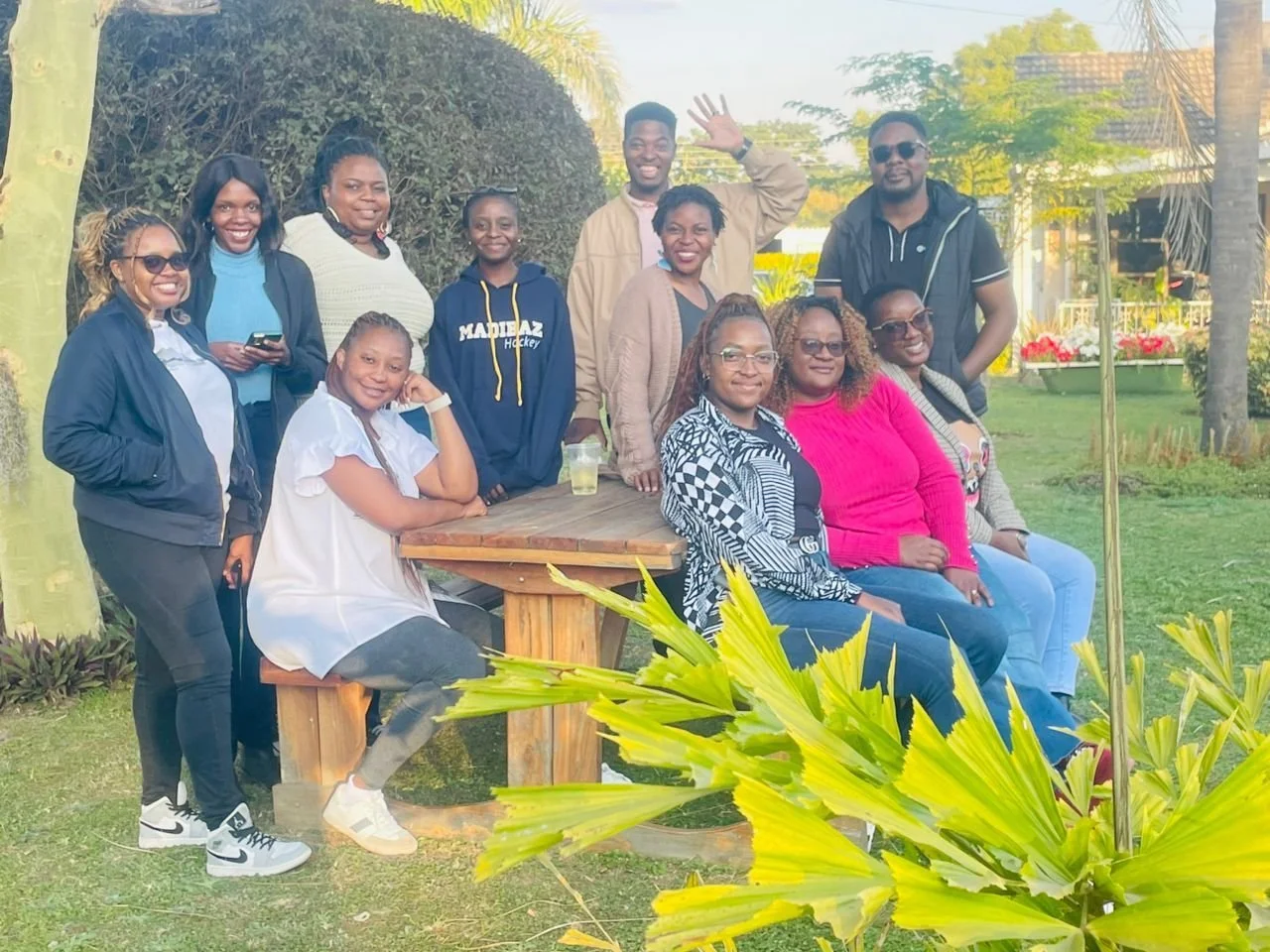Keeping it real about founding our human virtual assistant startup in Zimbabwe - How's it Really Going?
askChenai - turned six months old last month.
If it were a baby, we’d be starting solids, trying mashed avocado, maybe sweet potato. Sitting up. Wobbly, but determined.
That’s what this business has felt like. Magical. Messy. Hungry. Learning fast. But upright, alive, and growing.
Startups are hard. Startups in Zimbabwe? Borderline masochistic. But I wouldn’t trade this ride for anything.
So many people I meet are thinking of building something too. So many of our clients are in the same boat, also navigating the realities of running a small business. Seeing as we are a human virtual assistant company for founders and small businesses, we have the unique advantage of walking in the same shoes as or customers.
If that's you, and you're curious, here are the lessons from the ride so far - split into the good, the bad, and the ugly.
But for dramatic effect, let’s go backwards and start with the ugly, then the bad, and end on a happy note.
💀 Real Talk: The Ugly
The chaos, the crying at banks, and the quiet panic of wondering if you're delusional.
1. Registering a Zimbabwean company as a foreign-owned entity is not for punks.
It took me months and about $3,000 USD including my legal fees just to register the London virtual assistant company locally. I want to do everything by the book. Because we’re a local subsidiary of a foreign entity, the paperwork had to be approved by the Minister of Finance. I had to write supporting documentation demonstrating why askChenai would benefit the Zimbawean economy. Luckily, I had that covered because the entire mission of my company is:
To create work opportunities in Zimbabwe by delivering world-class remote support solutions that drive business success while empowering local talent.
2. Payment systems are broken in every direction
Half the time I can’t pay my suppliers using a bank transfer because their accounts don’t accept foreign transactions. Sometimes I find out the hard way: I send it, the recipient complains they got nothing, and two weeks later the money comes back-minus $40 in fees. I pay £15 every time I make a bank transfer. Monzo refused to send money to Zimbabwe. I had to open a new NatWest account just to keep the business alive.
3. It is very hard to open a local bank account
I'm a UK-registered business with a local entity, but it would be way more convenient to have a local Zimbanwean bank account. Someone from my team had to go to Stanbic every day to chema chema for assistance.
4. One landlord fight, one SIM card, one solar panel at a time.
Basic infrastructure is incredibly expensive here, even compared to other countries in Africa. Take internet access. You will be broken by the unreliability when paying hundreds of US dollars per month for what would cost maybe fifty quid here. I sorted that out early, because I learned the hard way. When people say they’re "bootstrapping," I doubt they mean fighting their landlord over Wi-Fi access. But that’s what happened. One day, our entire operation ran off one mobile SIM card. It was the end of that lease.
You can't trust a workspace provider who says "we have high speed internet" without test-driving it on a zoom call for yourself.
5. Some days I genuinely spiral... then boom, we’re full again
Most founders have moments of doubt. Few and far between, but they happen. We are a great, ethical, human centered virtual assistant company. Sometimes after seeing some tech bro announce their multi-million pound ARR figures on Linkedin, next to a post about how AI is taking over every single job, the panic creeps in: “What if I’m delusional and this never takes off?”
A week will go by without new sales. Lots of proposals out, and radio silence. I’ll lie awake debating if I need to pivot.
Then suddenly, we’re full. People do want smart, empathetic human virtual assistants. We have to onboard someone new ahead of schedule.
And I’m reminded: momentum returns. I am building something real.
⚠️ Real Talk: The Bad
The stress you budget for. The learnings that came late. The annoying realities that are just part of the job.
6. Not everyone clapping is buying—sales need asking
I've just read the book "What It Takes: Lessons in the Pursuit of Excellence" by Stephen A. Schwarzman. It's all about his experiece founding Blackstone. He write about this:
Lots of people will say “great job, well done” but that doesn’t mean they’re customers. You have to go out and sell. Ask again. Then ask again.
7. Some people will belittle your dreams
Not everyone sees the vision. I believe askChenai is going to be one of the biggest, most recognised BPOs in the world one day. I believe there is a place for smart, empathetic and human virtual assisants, affordable and ethical ADHD support, life admin support, and that this has huge potential to scale.
But I still get snide remarks from people like, “So what’s that little thing you’re doing?”
8. Training takes way more energy than I expected
I used to think you could just hire smart people and let them run. Nope. It takes structure. Repetition. Emotional labour. We invest an incredible amount into training our virtual assistants, we hire only a small percentage of those who apply - and it shows!
9. Some people genuinely thought we were bots
Despite our real photos, bios, human touch—some people assumed we were AI spam. The irony? Our whole edge is human support.
🚀 Real Talk: The Good
The moments of traction. The wins. The joy. The fire that keeps this whole thing burning.
10. My team is, like, incredible!
The good ones are so much better than I imagined. Their drive, ambtion and belief in what we are doing has taken me places I never thought I would go, like even launching a podcast last week. Yes, it's a sales initiative. But it's also just a really great podcast.
11. Ads haven’t delivered but LinkedIn content is still king
I’m not convinced Google Ads are moving the needle, which sucks given how much money I’ve spent on them - between the ads and the agency. I get a lot of time-wasters, people who maybe don’t have the social proof.
The majority of my business for virtual assistants has come from people who read my organic posts on Linkedin (like this one). Which is why it pisses me off when they mess with the algorithm.
So yes, it’s okay to self-consciously hit publish again. It’s not a vanity project - it’s your funnel.
12. My network is my net worth
Most of my early virtual assistant customers were people I already knew - not necessarily close friends, but people I’d crossed paths with. Never underestimate the power of your second-degree circle.
13. Black women have been my hype women, as usual
There’s this thing where people are afraid to publicly support one another, especially on LinkedIn. Even though a like can amplify someone’s work, lift them up, and help them grow—many will stay silent. But not Black women. Many have hyped me up, sent customers, cheered from the sidelines. They’ve shown up, and loudly.
14. A fast pivot into ADHD support changed everything
I spotted a trend in ADHD support and jumped early. Now it’s half the business. Just as important: I knew when to pivot away from things like customer service, which just isn't a priority for me right now, I should probably update my website.
15. I can build a badass CRM and dashboard for free
I coded a CRM in Google Sheets with a nudgebot that reminds the sales team to follow up with leads. Ditto a free, sexy project management dashboard. You don’t need fancy tools. You need commitment.
16. Month by month, dollar by dollar, we're doing this.
Not wildly profitable yet. I am far from making my f-you money. Not yet. But we’re standing. The model works. The revenue is there. And we’re still building.
17. There is so much joy
When a customer tells me we’ve changed their life… when someone new on the team finally gets it… when the processes click… that’s joy. Real, ordinary joy.
Final word? This might be a tiny company—but it’s also a global bet
I’m not building “just admin support.” I’m building one of the most ethical, scalable BPOs in the world. One that leverages African talent, prioritises human dignity, and delivers world-class operational muscle.
I love my country and I have the utmost belief in the potential of askChenai and Zimbabwe as a whole. I am also British, and believe in the potential of our UK small business economy.
askChenai helps me to do both - supporting small businesses and founders in the UK with really smart virtual assistants in Zimbabwe. I am doing this in a sustainable, ethical way, by tapping into the resources of the country I came from.
So, if you are looking for a razor sharp virtual assistant, yes, a human one, look no further than askChenai . Your next team member might just be in Harare.

